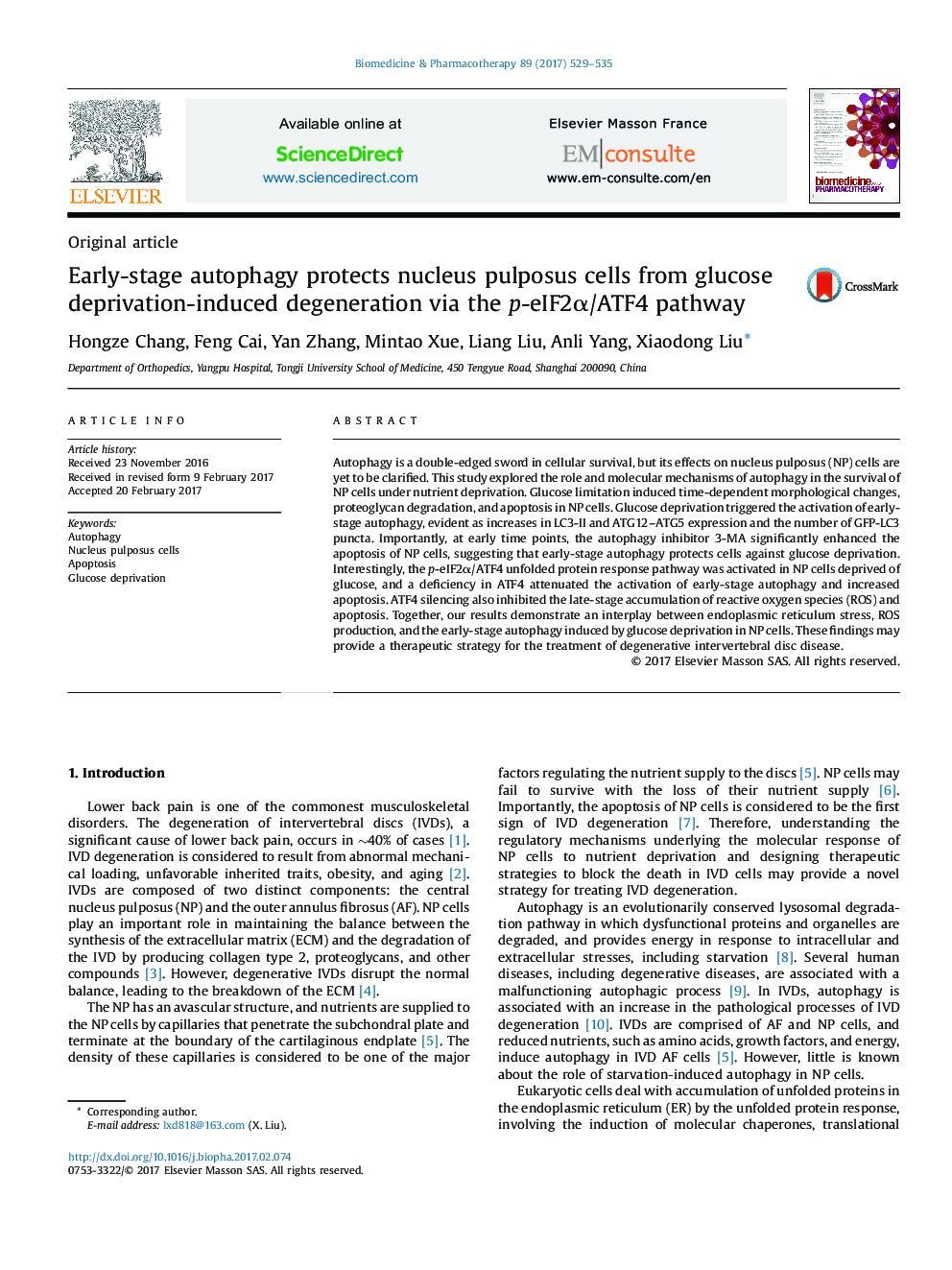| کد مقاله | کد نشریه | سال انتشار | مقاله انگلیسی | نسخه تمام متن |
|---|---|---|---|---|
| 5553275 | 1557953 | 2017 | 7 صفحه PDF | دانلود رایگان |

Autophagy is a double-edged sword in cellular survival, but its effects on nucleus pulposus (NP) cells are yet to be clarified. This study explored the role and molecular mechanisms of autophagy in the survival of NP cells under nutrient deprivation. Glucose limitation induced time-dependent morphological changes, proteoglycan degradation, and apoptosis in NP cells. Glucose deprivation triggered the activation of early-stage autophagy, evident as increases in LC3-II and ATG12-ATG5 expression and the number of GFP-LC3 puncta. Importantly, at early time points, the autophagy inhibitor 3-MA significantly enhanced the apoptosis of NP cells, suggesting that early-stage autophagy protects cells against glucose deprivation. Interestingly, the p-eIF2α/ATF4 unfolded protein response pathway was activated in NP cells deprived of glucose, and a deficiency in ATF4 attenuated the activation of early-stage autophagy and increased apoptosis. ATF4 silencing also inhibited the late-stage accumulation of reactive oxygen species (ROS) and apoptosis. Together, our results demonstrate an interplay between endoplasmic reticulum stress, ROS production, and the early-stage autophagy induced by glucose deprivation in NP cells. These findings may provide a therapeutic strategy for the treatment of degenerative intervertebral disc disease.
Journal: Biomedicine & Pharmacotherapy - Volume 89, May 2017, Pages 529-535